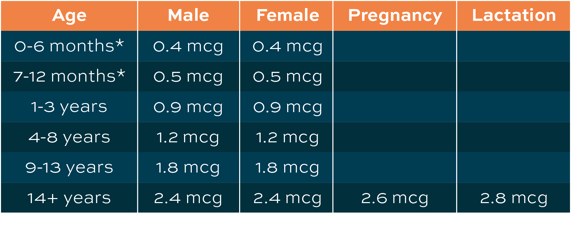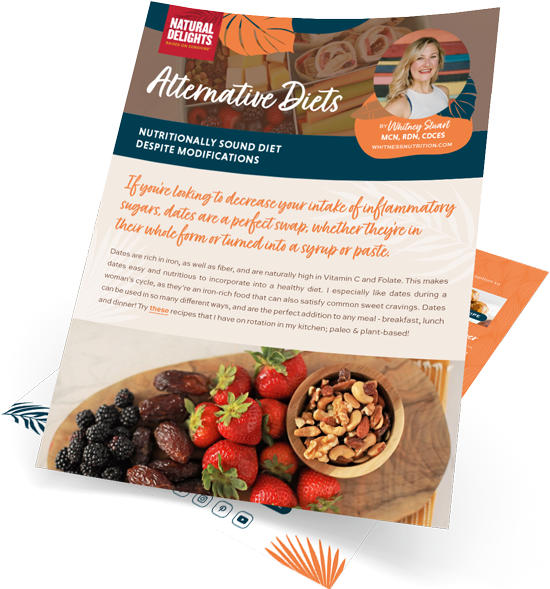All statements on this page have been written and peer reviewed by registered dietitians. All statements are made by that of the author as an expert in health sciences and not by Natural Delights as a company.
A plant-based diet consists mostly or entirely of plant-based foods with no animal-source foods, although this diet preference may not be vegan (which also requires no animal by-products such as honey, eggs and cheese). Many individuals adopt a flexitarian approach where a majority of their diet is plant-based, with small additions of animal based foods as they desire.
With any diet modification, it is pertinent to consider what naturally occurring micronutrients may be less abundant. This way, extra emphasis can be placed on foods (or supplementation) rich in these nutrients to ensure the body can still function optimally!

RD Tip: Vitamin C may improve absorption of nonheme iron. Thus, pair your cashew or pumpkin seed snack with some citrus fruit!
A plant-based diet is naturally plentiful in fiber! Dark leafy greens, whole grains, and legumes are fibrous foods that may contribute to a healthy gut, improved digestion and regulate bowel function.
A diet full of fresh and seasonal fruits and vegetables is filled with antioxidants that may support overall health.

Meet your needs, easily! Fill each category easily by utilizing a bento box. Non-starchy veggies, lean protein, complex carbohydrates and healthy fats for sustained energy

A paleo diet was designed to resemble what our hunter-gatherer ancestors ate thousands of years ago. It includes a whole foods based diet without dairy, grains, refined sugar and legumes.
A paleo diet emphasizes more home-cooked meals and time in the kitchen leading to fresh meals and less inflammatory packaged food consumption. Pro/Con? The paleo diet emphasizes cooking, as there are few paleo diet restaurants, but this can also lead to burn-out and cooking fatigue.
The paleo diet puts a great emphasis on the quality and sourcing of protein (wild, grass-fed) which may be an important factor for some individuals.



These statements have not been evaluated by the Food and Drug Administration. This product is not intended to diagnose, treat, cure or prevent any disease.